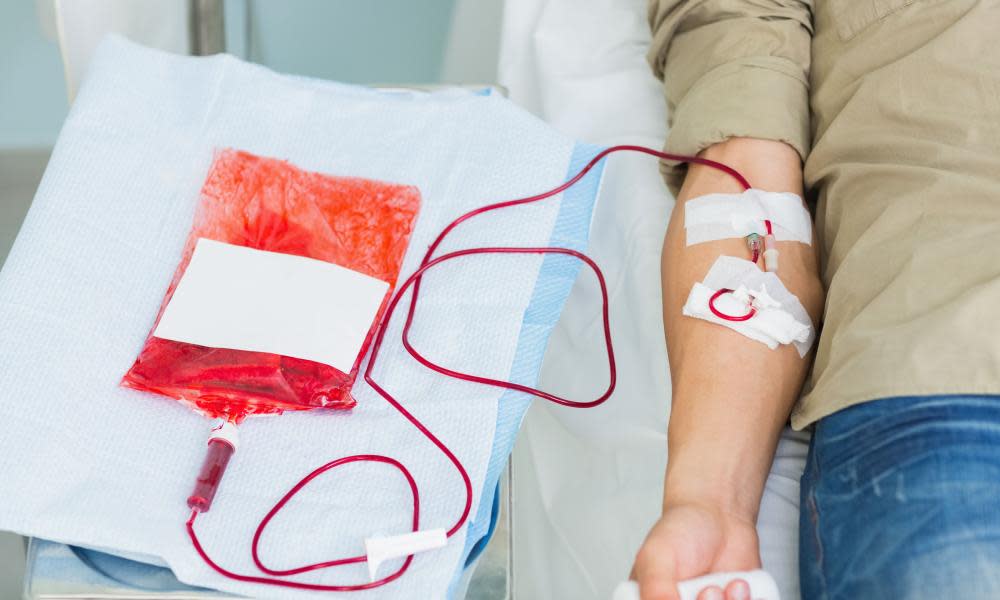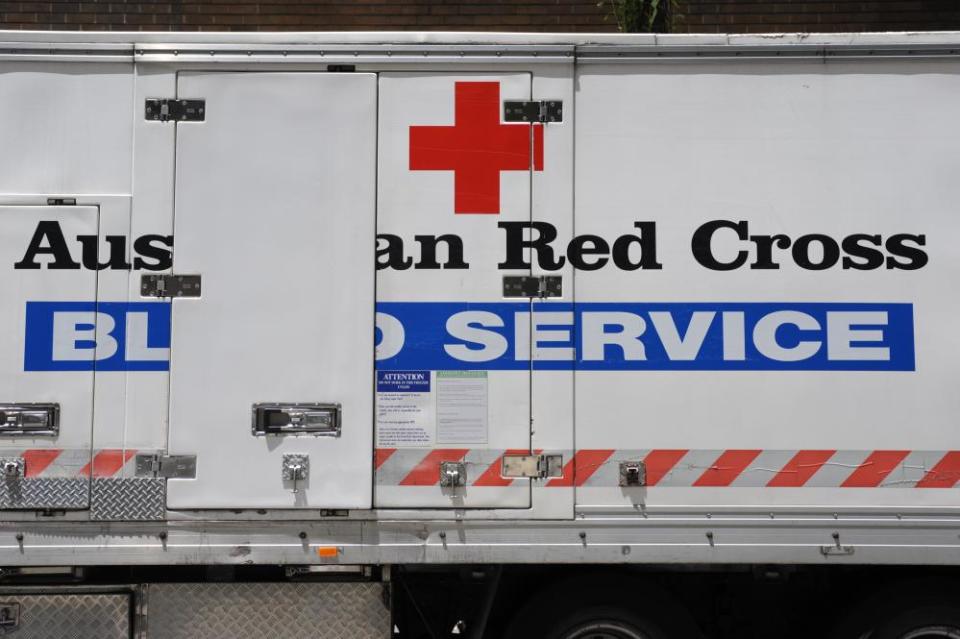Should Australia end restrictions on gay and bisexual men donating blood?

When Tony Heiniger received a call in the middle of the night requesting he rush to Hobart hospital to donate blood, he didn’t expect the caller to hang up purely because of his sexual orientation.
“I got a phone call from the Red Cross at 3am and they said there’s an urgent need for your blood, can you come down to Hobart hospital, we’ll pay for a cab,” Heiniger said.
“I said absolutely, I’ll be down in a heartbeat, but I’m a gay male … and I got hung up on. There was no bending of rules, I just got hung up on.”
In July this year, the UK removed its three-month abstinence period for gay and bisexual men donating blood, and moved to an individual risk assessment for all donors, regardless of gender or sexual partner.
Related: Almost all Australian LGBTQ+ high school students hear homophobic language at school, study finds
It joined a number of nations including the Netherlands, Israel, Argentina, France and Germany to have abolished their ban on blood donations for particular groups since the pandemic began.
But under Australian policy, gay men or trans women who have sex with men are unable to donate blood if their sexual abstinence period is less than three months. That period was reduced by the Australian Red Cross Lifeblood from 12 months earlier this year.
Before coming out as gay, Heiniger estimated he donated blood as a teenager more than a dozen times. Now 28, he found it “baffling” he couldn’t provide a health service because his sexual preference happened to be men.
Saying our blood isn’t worthy makes you feel like a second-class citizen
Tony Heiniger
“It got me thinking at the time [of the call], if there was an accident and I’ve been called and denied, what happens to the person on the other end? In 2021, you’d think people wouldn’t think that way,” he said.
“You get served these advertisements all the time that say ‘we’re desperate, we need your blood’. But if it was so in need, make that happen for me. If they change the rules today, I’ll be in there tomorrow.
“Saying our blood isn’t worthy makes you feel like a second-class citizen, like there’s something wrong.”
A recently published review of blood donor referrals found “no meaningful risk” in lifting the ban and assessing donors on the basis of their individual sexual activity.
Dr Sharon Dane, a quantitative researcher, said evidence from the most recent clinical studies and statistical modelling clearly recommended Australia abandon its current abstinence-based deferral and adopt individual risk assessment instead.
“Modelling suggests this would actually increase the amount of safe blood available to those in need of blood products,” she said.
The ban on gay blood donations was put in place in the 1980s when much less was known about the detection and transmission of HIV/Aids.
It applies to all sexually active gay men, as well as sexually active bisexual men and transgender women who have sex with men – including those in long-term relationships.
Just Equal Australia’s president Rodney Croome said for decades LGBTQI+ Australians had found the ban “outdated, stigmatising and counterproductive”.
“Now we have clear international evidence and precedents that point Australia in the direction it must go,” he said.

A Red Cross Lifeblood spokesperson said the latest Australian data showed there was still a “much higher risk” of newly acquired HIV infections among men who have sex with men.
“While we test all blood donations, even the very best testing can’t always pick up early infections,” the spokesperson said.
Related: Blood donation rules changed to attract more donors with rare subgroups
“Lifeblood considered individual assessments as part of our recent review, but they require a more even distribution of new HIV infections across a country’s whole population.
“Because that is not the case in Australia, the individual risk assessment approach is not the safest approach at this time here. We are exploring other pathways to broaden donor eligibility.”
Kyle Chapman, a safe sex educator, is eager to donate blood but he is currently in a long-term relationship and says the three-month abstinence period was “pretty stupid”.
“A lot of research has been done on HIV protection and screening, and transmission rates for HIV are a lot lower,” he said. “It makes sense to completely abolish the ban.
“It reinforces negative connotations of gay sex and stigmatising certain groups of men. I fight against the idea only gay men can contract HIV.”

 Yahoo News
Yahoo News 
